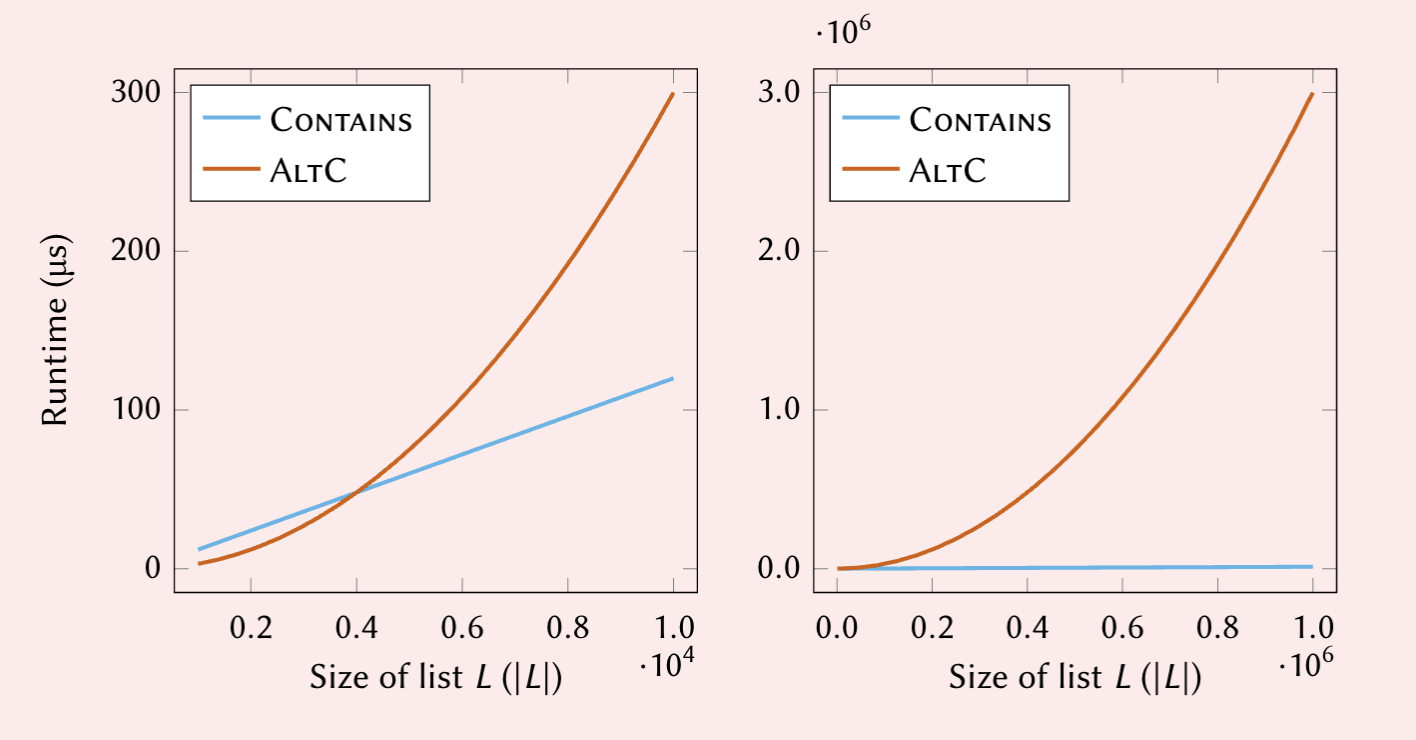algorithm = takes one-or-more values, produces an outputs
Ex: contains
Given a list of and value , return
Input: is an array, is a value Output: true if , false otherwise
i, r := 0, false
while i neq |L| do
if L[i] = v then
r := true
i := i + 1
else
i := i + 1
return rinvariants
Induction hypothesis that holds at beginning of iteration.
- Base case:
invholds before the loop - Hypothesis: holds after
j-th, j<mrepetition of loop - Step: assume
invholds when startm-thloop, proves it holds again at the end ofm-thloop
Are we done?
- Assuming invariant → does it reach conclusion
- Does it end?
Formal argument: prove a bound function
bound function on the state of the algorithm such that the output of
- natural number (0, 1, 2, …)
- strictly decreases after each iteration
starts at
correctness.
- pre-condition: restriction require on input
- post-condition: should the output be
- prove the running the program turns pre-condition and post-condition
complexity.
assume V is not in the list
Contains(N) = 5 + 7N
given V is in the list
containsis correct, runtime complexity is and memory complexity is
runtime.

models are simplification.
shows different growth rates.
Interested in scalability of algorithm For large enough inputs,
containswill always be faster thanaltcbecause order of growth of
upper bounded (at-most)
lower bounded (at-least)
equivalent (strictly bounded)
